Beneath dark skies and starlight, I first learned that Bedouin coffee is about more than just the drink. Here’s an introduction to the flavours and rituals that surround the Arabic coffee making process.
Traditional Bedouin coffee pots outside the Monastery at Petra
Making Bedouin Coffee
Sparks hissed from the fire where we clustered beneath the sky.
Late for stargazing, we waited for Hussein to finish his story. He sat cross-legged, wearing the traditional thawb and keffiyeh, his deep eyes lined with kohl.
“My darling,” he said, fixing his eyes on the girl in front of him. “Forget the astronomer. Stay with me. I’ll show you the stars in the day.”
And that was our first introduction to the world of Bedouin coffee.
Related: 7 of the Best Things to Do in Jordan
Bedouin Culture & Coffee
Bedouin coffee marks an important ritual in social situations, from birth to death and everything in between.
Typically, the Bedouin people offer coffee to guests before a meal and it is generally considered rude to refuse. Into smooth round cups, something somewhere between an egg cup and a thimble, you have one cup for your soul, the second for the sword and the third because you are a guest.
You shake your cup when you’ve had enough, otherwise the coffee will keep on coming.
After conflicts and personal problems, sharing coffee together symbolises that all is well again.
What’s more? Arabic coffee is even UNESCO protected.
Roasting & Grinding Bedouin Coffee
In the darkness of Jordan’s desert, our stargazing appointment slid further away as we turned instead to the serious task of making Arabic coffee.
First the coffee beans are roast over an open fire in a glinting bronze mehmas. They’re then ground with a rhythmic, sombre beat inside a grinding cylinder.
“You hear this sound at weddings – and funerals too,” whispered the daytime astronomer, otherwise known as Hussein, the joke teller, and general manager at the Feynan Eco Lodge.
The Feynan Ecolodge, one of the top 25 in the world according to National Geographic, lives deep in the desert, in the historic Dana Nature Reserve. Daytime activities involve hiking to Roman mining ruins and harvesting plants for soap.
By night, it’s the perfect spot for stargazing with little to no light pollution and the sky seems to open up larger than before.
The Dana Nature Reserve – 11 000 Years of History
As it turns out, humans have been on this patch of dry scrub desert (officially called the Dana Nature Reserve) for more than 11 000 years. The Romans used to mine copper here, and when Christianity swept across their empire, they responded by creating some of Christianity’s first martyrs through working them to death. Their graves remain here today.
So, too do the remnants of the mines – mossy coloured copper deposits clinging to exposed gnarly rock. Gaping deep holes in the ground where the mine shafts used to be.
Besides the tunnels, a few plants grow. A scratchy acacia here, a minty coloured plant there. Mohammed, our guide, breaks some branches off, crushing them against a rock with a machine-gun action.
“Bedouin soap,” he says, reaching for some water. He rubs his palms together, turning not only plant mush into lather but my world weariness into childlike joy.
Later, we visit the Bedouin tents, a mile or so from the main lodge.
Hospitality is a core part of Bedouin culture – bon app!
WHAT DOES BEDOUIN MEAN?
The term “Bedouin,” is an interesting one to consider. It derives from the Arabic for people of the desert, referring to the tribes that roamed across the Middle East before today’s national boundaries were drawn in the 20th century.
Some are nomadic, some semi-settled, some permanently so.
But it’s not a term that applies to everyone who lives in the Middle East.
Making Bread with Bedouin
Three women stretch and pound dough between their hands, spinning it flat across the domed metal that rests on the fire to make bread for dinner.
The woman to my left hands me a piece.
I love the taste of this flat, stretchy bread, pockmarked with charcoal spots and smoothed at the edge to make a floppy, tasty circle. Children poke their heads around the door and then scurry off again, laughing, and we stroll back towards the lodge feeling nearly blind without the streetlights.
The Dark Desert
By the time we sit down for coffee and stargazing, the darkness is complete The Bedouin stride ahead on uneven ground, while I stumble around sightless.
I may not be able to see, but I can still hear. I can hear dogs barking and donkeys braying. I hear my feet twist over the rocks. I feel blindfolded.
The Bedouin are fine. It has to make me stop and wonder. Just how much light pollution must seep into my normal life?
Many different types of Arabic coffee pots…
Types of Bedouin coffee
In general, you’ll find two types of coffee:
- Qahwa sada – regular
- Qahwa helwe – sweet
Sugar goes in during the preparation phase so make your choice right at the beginning. It’s not about adding a teaspoon of sugar at the end.
When it comes to sweetness, you’ll find:
- Qahwa ariha – very lightly sweetened
- Qahwa mazboot – medium
- Qahwa ziyada – enough sugar to sink a ship
Wadi Rum: preparing coffee on an open fire
Characteristics of Arabic Coffee
Eventually we sit down. The fire lights, the coffee beans roast. They’re ground down and then boiled with chopped cardamom.
This Arabic coffee is sensuous yet thin, rich in spice and pulse-racingly strong. Apparently, the etiquette is for the host to take the first cupful to make sure it isn’t burnt. Then the guest to the right takes a turn. You’re allowed up to three cupfuls before you need to shake the cup in the air to signal that you’ve politely had enough.
The cup seems more like a thimble – and we’ve enough coffee to last us for hours.
Then again, the stars have been there for more than four billion years. They can probably wait a few hours longer. But it would be rude to rush the coffee.
Jordan – Wadi Musa – Bedouin coffee greeting in a local home
How to arrange to drink coffee with bedouin
Drinking Arabic coffee with Bedouin in Jordan is one of those experiences that will stay with you for life.
While you can arrange the experience through a stay at Feynan Ecolodge, another option is to join a group tour with a reputable company like Globus. Their Jordan Escape tour seeks out meaningful experiences like this with locals.
You can check out my thoughts on their Jordan itinerary here and read about how we drank coffee in a Bedouin home in Wadi Musa and broke bread with Bedouin in the red sands of Wadi Rum.
Where to stay: Feynan Ecolodge
A stay at the Feynan Ecolodge involves a dusty drive through the desert, with more than one or two bumps along the way. It’s an eco lodge that takes the eco part seriously, being one of 25 of the best in the world according to National Geographic. That does mean, though, that there’s no electricity at night, no hot tubs, no infinity pools.
Instead, rooms are simple and clean and the food is delicious.
About the Feynan Ecolodge and Its Philosophy
Feynan’s causing quite a stir in these parts, not only for its green credentials (which stretch beyond the ruse of saving money by not washing your towels every day) but also for its integration with local people. Both issues, while laudable, attract controversy from outside sources, not least of all from me.
The first person I meet in Feynan is Nabil Tarazi, the Managing Director based in Amman. Alas for him, he introduced the concept to a rather tired and cynical hack. Me. I’ve heard a lot of fluff – and dreary fluff at that – on the subject of sustainable ecotourism and I hadn’t realised just how jaded I’d become until now.
Yes, all their staff were local, other than he himself who hailed from Palestine.
No, the interactions with the locals weren’t staged. They wouldn’t ask for money, you couldn’t book them, and if they were busy then they’d say they didn’t have the time.
Why do they bother? Because it’s their project and their future, they want it to succeed.
Hmm. (From me, this time.)
Recommended reading: The Madaba Mosaics Jordan – Making the Broken Beautiful Again
THIS IS REAL ECO TOURISM
Back to Nabil: “we can all see what happens now with short term projects. Short term gain. Money now, a place to live and an education lost forever.
“We want to develop something more than that.”
“We use candles for lighting, except for the bathrooms, which are powered by solar panels. We’re not connected to utilities.
Local women collect the leftover wax and create new candles in the morning.
STAYING ECO
“We don’t serve meat because the electricity required for refrigeration is too high – and it’s not a daily part of local diets. Also, eating meat isn’t environmentally efficient.
“We collect leftovers and compost them to use for fertiliser.
“You’ll find ceramic bottles for water in your room (created by the local women’s cooperative.) We’re working on creating plastic, sealable, refillable bottles for you to take away on hikes.”
How far is Feynan Ecolodge from Amman?
It’s around a three hour drive, with some stunning views of crumbling desert and dry roads.
Disclosure: I visited Jordan as a guest of Visit Jordan and later with Globus escapes. All words, pictures, video clips, ideas, ramblings, entertainment and whatever else you may find here are my own. As usual.
More on Travel in Jordan
See our travel guide to the best things to do in Jordan and then browse through the articles below.

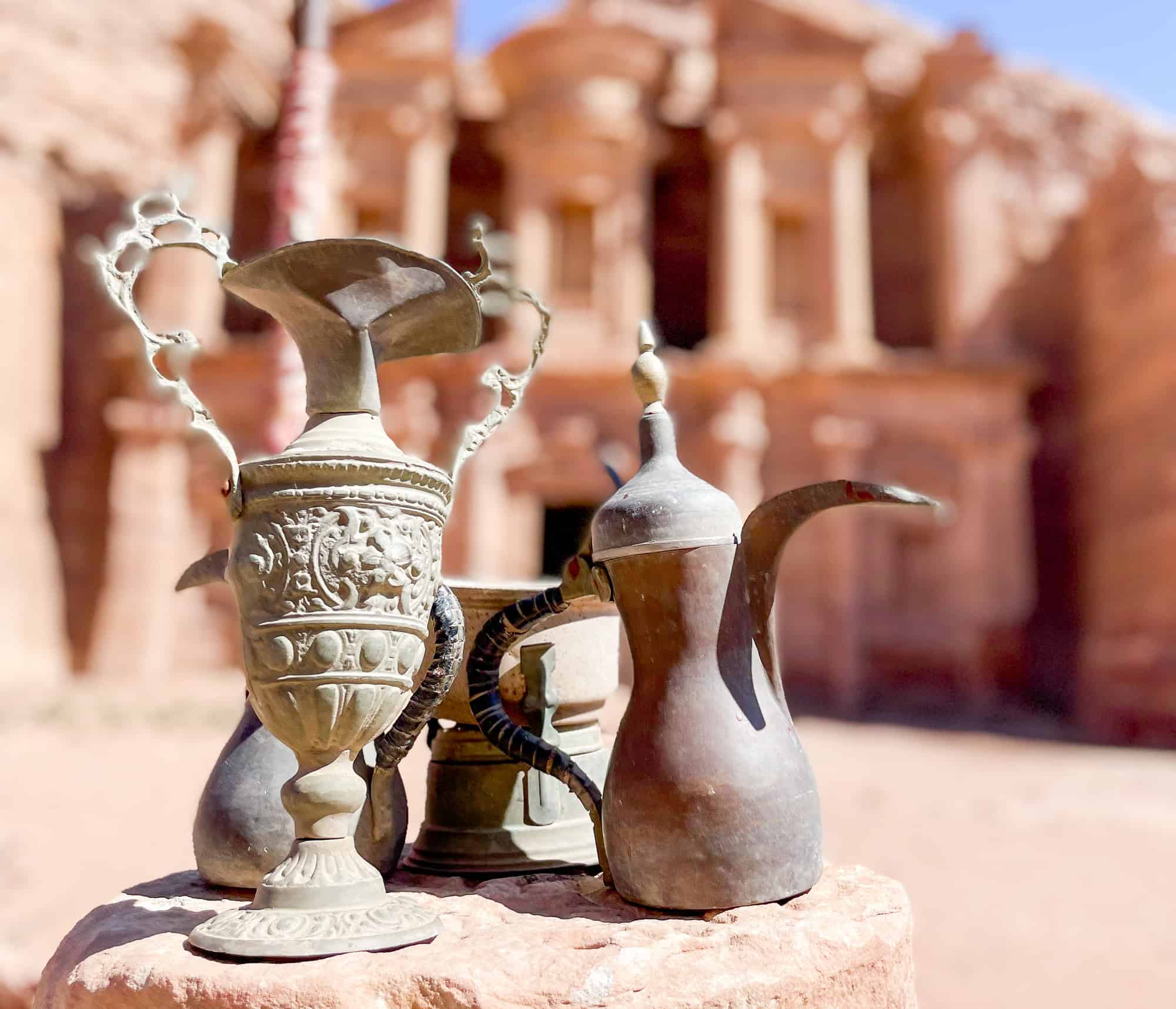
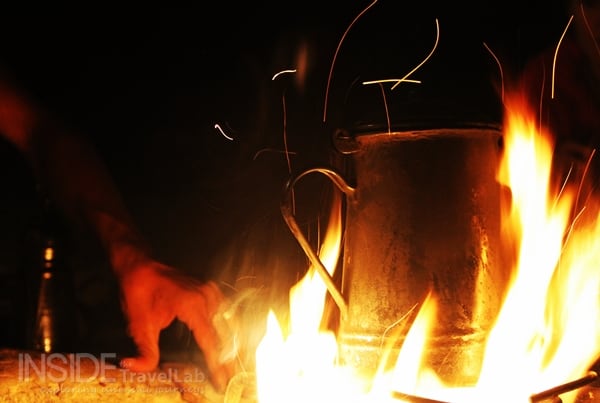
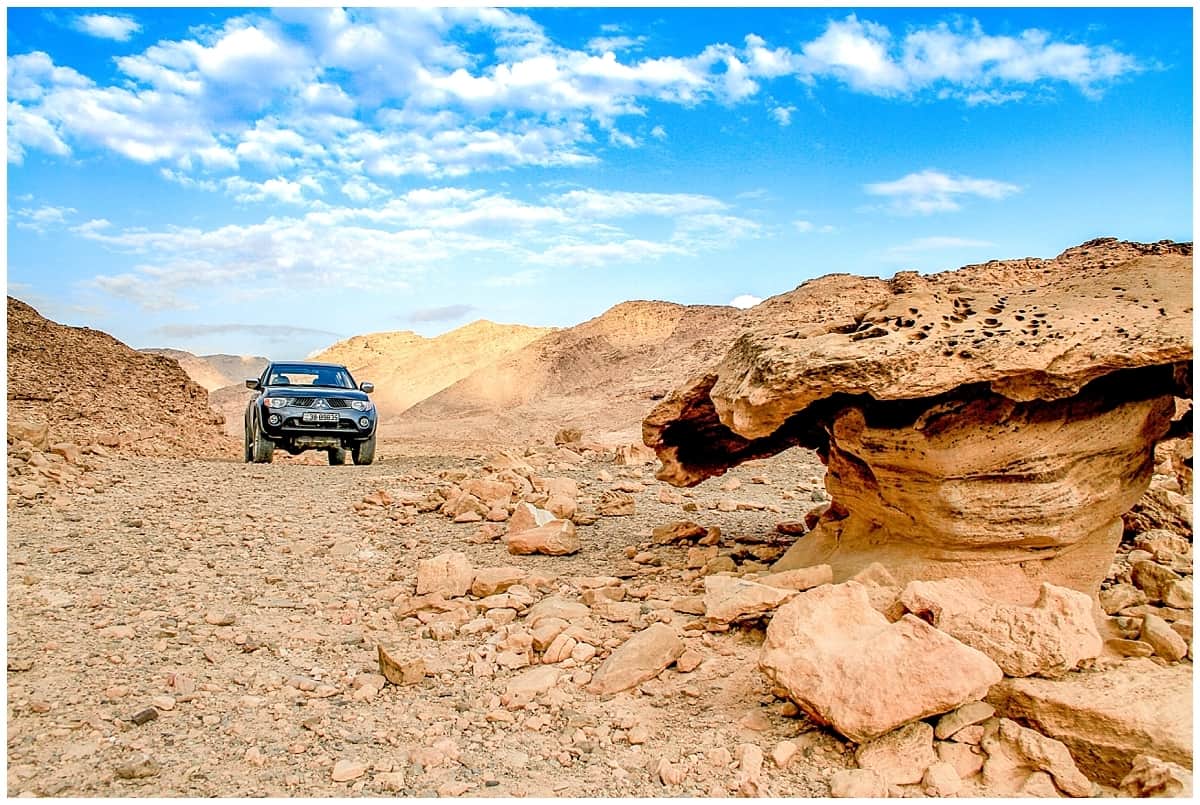
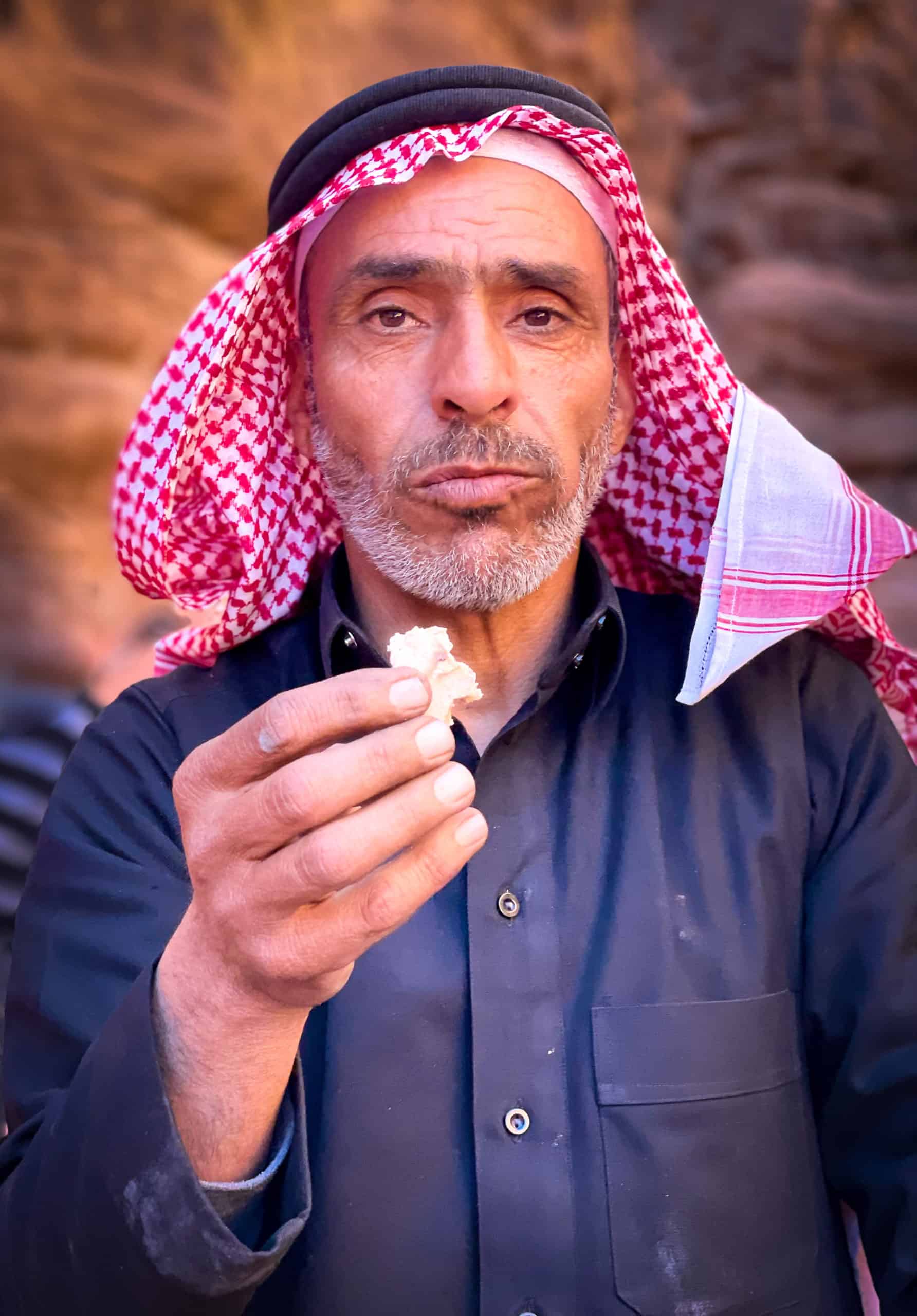
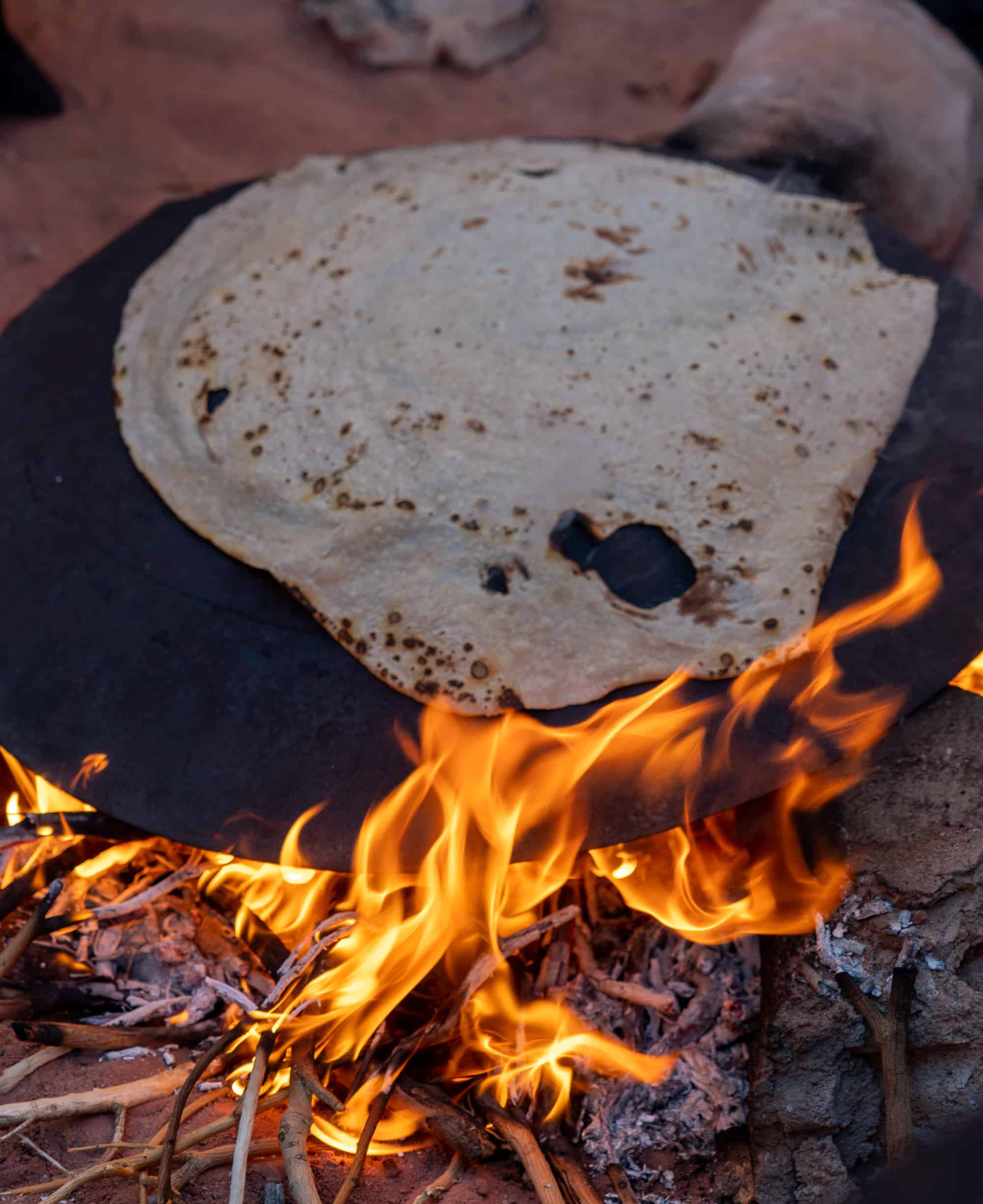
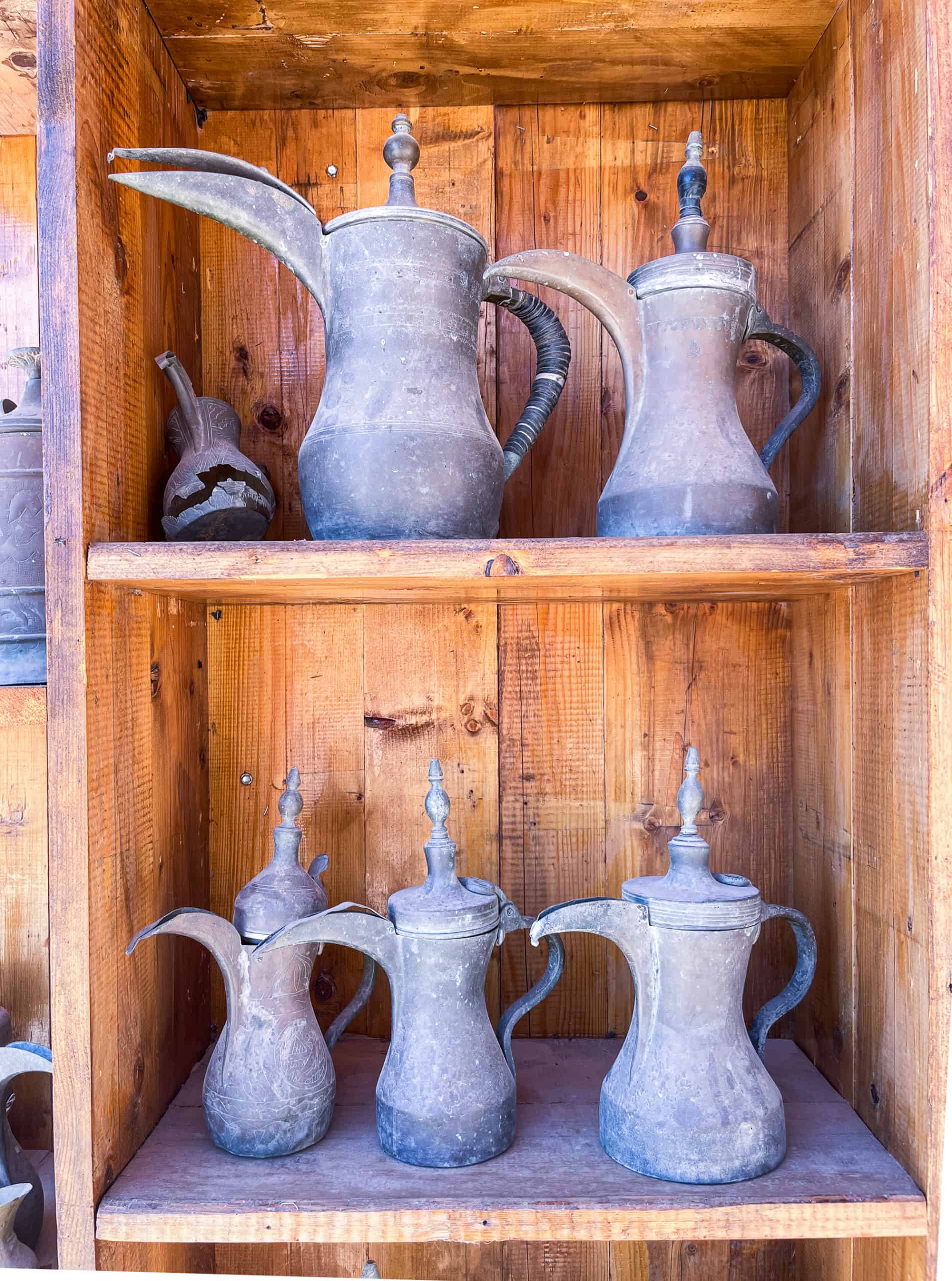
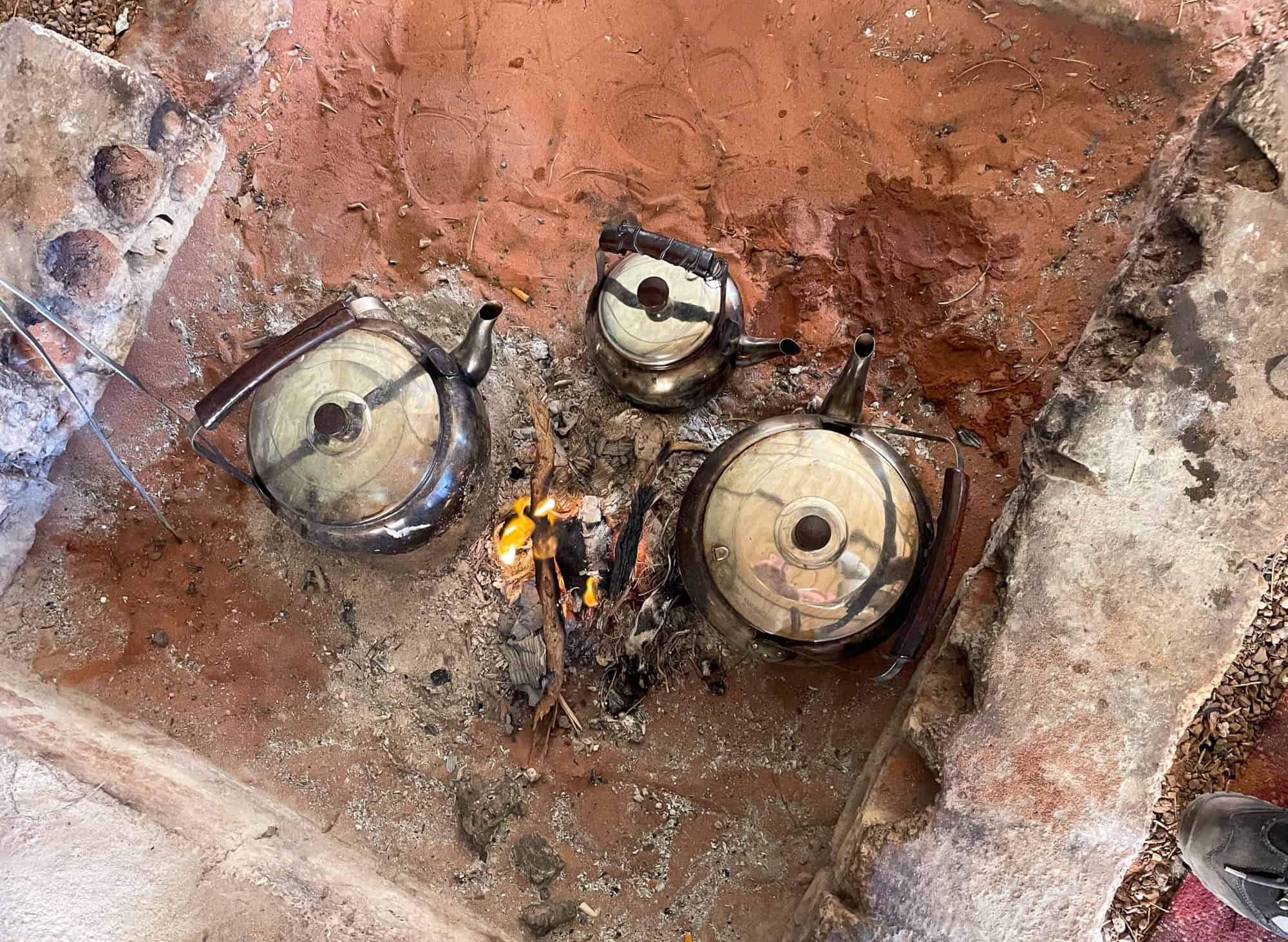
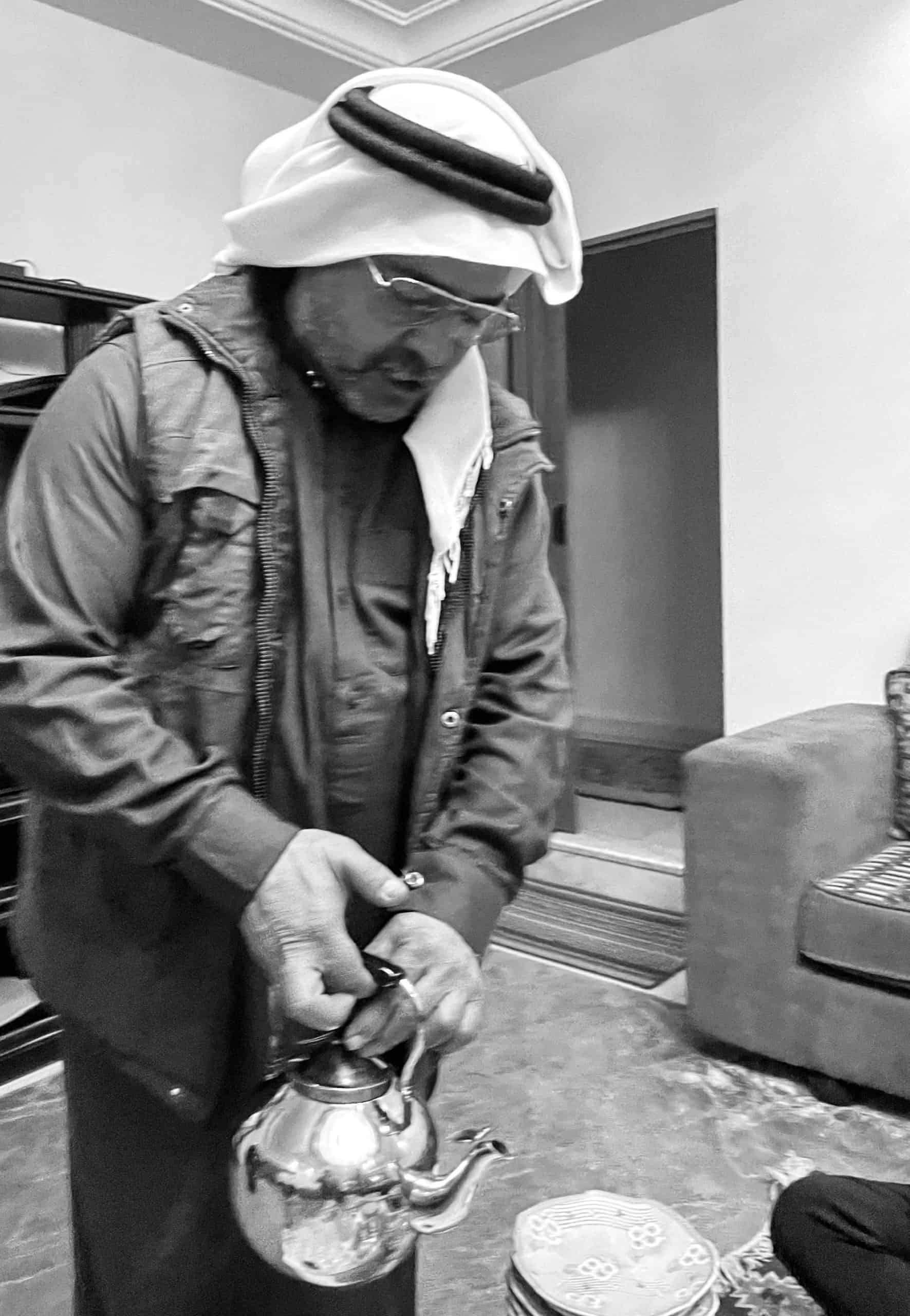
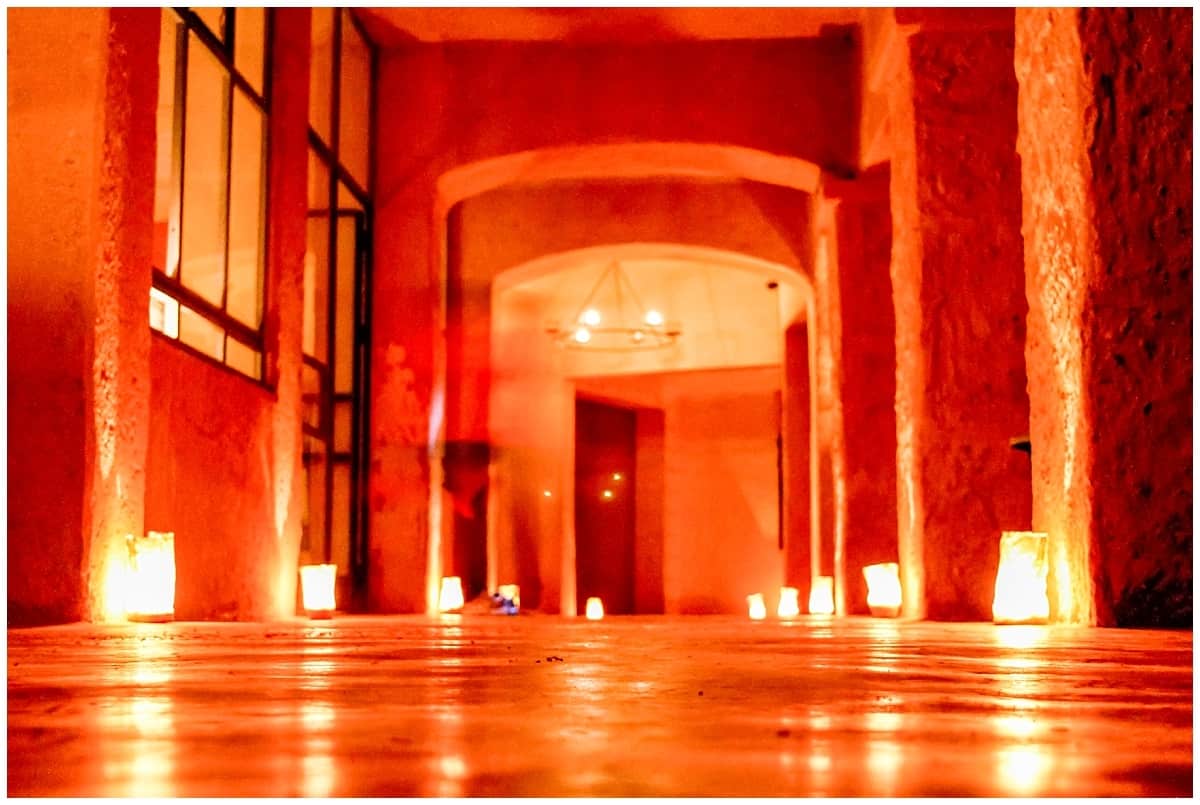
I was at Feynan last spring and absolutely loved it there. It is one of my favourite accommodations in the world! Thanks for the lovely story about your experience there.
My pleasure. I found it a fascinating place…
I have, as you can imagine, read several stories from Jordan over the last few months. They have all left me thinking, “Yeah, I’d like to go there one day.” But yours makes me want to jump on the next plane and yearn to go!
I can imagine!! Thank you for your kind words here ;-)
I have never shared coffee with or stayed with a bedouin, but after reading this, it’s on my list! I’m fascinated by the bedouin soap though, so cool!